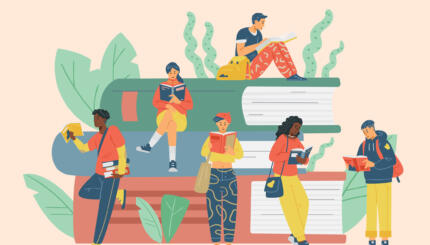There was an urgent, troubled look upon her face. She approached me as her group of Christian clergy was proceeding to their bus. They had just heard me and my Palestinian partner in the Roots Initiative talk about our personal processes of transformation in the wake of meeting the ‘other.’ I had spoken about discovering the human face and the image of God in the Palestinians I had met, and about my conviction that we must honor their identity and respect their dignity.
She couldn’t understand, she told me, how so many people can call themselves religious and at the same time not see the divine image in all human beings. She deplored those who claim to be people of faith and yet harbor prejudice and ill will toward those who are not like them. Your path is one of true faith, she said to me. Theirs is not.
I told her that I know many Jews of sincere faith who are blind to the humanity and the suffering of the Palestinians. I am appalled by their callousness, but I cannot claim that my Judaism is more authentic than theirs. As much as it pains me, I must admit that their faith also runs deep and is as sincere as mine.
It appeared to me that she was a bit taken aback, deflated. This was not the response that she expected. For a few seconds, she just looked at me as she came to terms with my message. It was a bitter pill to swallow but she got it. She nodded and got on the bus with the others.
Had there been time, I would have told her that I believe that there are many authentic religious paths. As a Jew, I recognize many forms of Judaism, all supported by sources, rooted in historical precedent, and flowing from legitimate interpretation. I can quote my texts and they can quote theirs. Rational argument is not going to produce a clear winner. There is something deeper going on here…
I opened my computer upon arriving home and found an email from an older man in my community who has made a habit of negatively commenting upon my work creating bridges of reconciliation between Israelis and Palestinians. He was apparently incensed by the announcement I had posted about a joint Palestinian-Israeli blood drive sponsored by the Roots youth group.
He wrote to me about the biblical precept of loving the other (the ger – sojourner/stranger) explaining that it only applies to those non-Jews who recognize that they are mere aliens living within the Land of Israel that belongs exclusively to the Jewish People. All others, he wrote, are to be treated as enemies. They have no place here. His meaning was clear – it is forbidden to show empathy and to build bridges of connection with our Palestinian neighbors lest we legitimate their claims of belonging to this land.
I have encountered this position many times before. Many of my neighbors espouse it – on religious grounds. For some of them it is bound up with the dehumanization of the Palestinians. A deeply religious Jew once wrote to me – after I had publicized a campaign to provide food for indigent local Palestinians – that rat poison is the only form of charity that our Palestinian neighbors deserve. Another time I scandalized a kippah-clad young man who had given me a lift home. I told him about the experience of meeting the other and finding a human being created in God’s image. He looked at me in absolute horror. How can you dare say that, he said. They are cockroaches.
I find this abhorrent, revolting, but ‘religion is as religion does’ – the way people live it and express defines what it is. I must admit that this is one of the many forms that Judaism takes, both in the past and in the present. I cannot claim that these people’s faith is inauthentic. No amount of religious debate is going to prove them ‘wrong’.
But I believe that there is hope. Not in the text – textual debate on such matters will always result in a draw – but outside of the text. There is hope when we manage to get people to look up from the text and into the eyes of a human being. Another way of formulating it: People – the other – are also text that must be studied.
We come to the written word of tradition with certain unconscious intuitions conditioned by our environment and our experience. These cause us to see the traditional text through a certain prism. Many religious Jews see the text through the prism of almost two thousand years of suffering at the hands of the ‘goyim’, culminating in the Holocaust. Arab and Palestinian violence is seen not as political resistance but as of the same cloth as Medieval Christian anti-Semitism and Nazi terror. All this not only influences how we read the text but actually almost becomes part of the text as we see it.
To allow the text to be interpreted differently, we must create repeated and powerful experiences of positive human encounter with the other. Unmediated human contact, in which we meet the other in a safe and non-threatening environment can begin to shape new internal prisms that will show the text in a new light, revealing levels of meaning heretofore hidden from view. The text speaks to us differently after we undergo different experiences.
We must look up from the text into the eyes of a human being. When we thereafter look back at the text, we continue to see those same eyes looking back at us. We are infused with new intuitions concerning the humanity and equality of the other and are thereby transformed, and the text is transformed as well. A paradigm shift takes place that causes the text to present itself to us in a new light. The newly discovered text may then amplify our newfound sense of shared humanity and propel us to unimagined levels of respect and empathy.
I dare not claim and I certainly cannot prove that such a faith is a more authentic one. I can only say that in my experience, it is a broader and richer one, and a better one for the fractured, unredeemed world in which we live.



